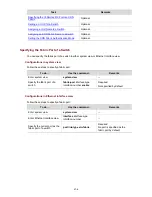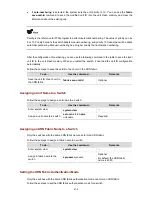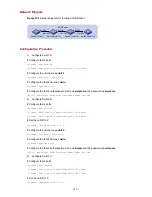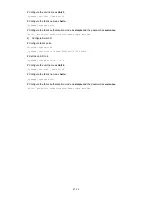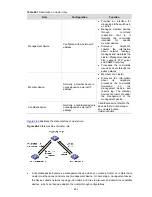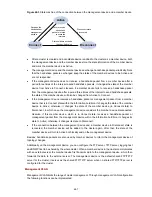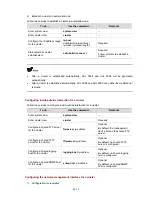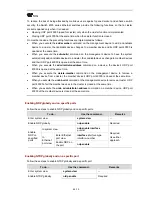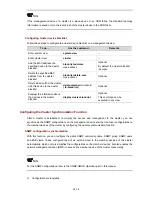
packet data. The receiving devices store the information carried in the NDP packet into the NDP
table but do not forward the NDP packet. When they receive another NDP packet, if the information
carried in the packet is different from the stored one, the corresponding entry in the NDP table is
updated, otherwise only the holdtime of the entry is updated.
Introduction to NTDP
NTDP is a protocol used to collect network topology information. NTDP provides information required
for cluster management: it collects topology information about the switches within the specified hop
count, so as to provide the information of which devices can be added to a cluster.
Based on the neighbor information stored in the neighbor table maintained by NDP, NTDP on the
management device advertises NTDP topology collection requests to collect the NDP information of
each device in a specific network range as well as the connection information of all its neighbors. The
information collected will be used by the management device or the network management software to
implement required functions.
When a member device detects a change on its neighbors through its NDP table, it informs the
management device through handshake packets, and the management device triggers its NTDP to
perform specific topology collection, so that its NTDP can discover topology changes timely.
The management device collects the topology information periodically. You can also launch an
operation of topology information collection by executing related commands. The process of topology
information collection is as follows.
z
The management device sends NTDP topology collection requests periodically through its
NTDP-enabled ports.
z
Upon receiving an NTDP topology collection request, the device returns a NTDP topology
collection response to the management device and forwards the request to its neighbor devices
through its NTDP-enable ports. The topology collection response packet contains the information
about the local device and the NDP information about all the neighbor devices.
z
The neighbor devices perform the same operation until the NTDP topology collection request is
propagated to all the devices within the specified hops.
When an NTDP topology collection request is propagated in the network, it is received and forwarded
by large numbers of network devices, which may cause network congestion and the management
device busy processing of the NTDP topology collection responses. To avoid such cases, the following
methods can be used to control the NTDP topology collection request advertisement speed.
z
Configuring the devices not to forward the NTDP topology collection request immediately after they
receive an NTDP topology collection request. That is, configure the devices to wait for a period
before they forward the NTDP topology collection request.
z
Configuring each NTDP-enabled port on a device to forward an NTDP topology collection request
after a specific period since the previous port on the device forwards the NTDP topology collection
request.
48-5




